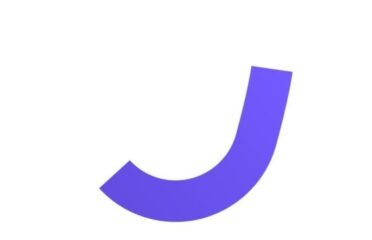How to Select a Good Bodybuilding Coach: Key Criteria to Consider
Choosing the right bodybuilding coach is crucial for achieving your fitness goals, enhancing performance, and reducing the risk of injury. A good coach provides personalized training plans, nutritional guidance, and the motivation needed to push your limits. Here’s what you should look for when selecting a bodybuilding coach.
Qualifications and Experience
A reputable bodybuilding coach should have relevant education or certifications from recognized institutions, such as NASM, ACE, or CSCS. These certifications indicate that the coach has received formal training and adheres to industry standards. Additionally, a background in fitness, nutrition, or a related field is advantageous, providing a solid foundation of knowledge.
Experience
Experience matters in the bodybuilding world. Look for a coach who has been in the industry for several years and has specific experience in bodybuilding. Success stories and client testimonials can offer insight into their ability to help others achieve their goals. Not necessarily a requirement but it also helps if the coach has had experience competing in shows themselves as they can relate to what you’re going through.
Personalized Approach and Assessment of Individual Needs
A good coach will conduct initial consultations and fitness assessments to understand your current fitness level, strengths, and weaknesses. They should create tailored training programs that align with your personal goals, whether it’s preparing for a competition, gaining muscle, or losing fat.
Nutritional Guidance
Nutrition is a critical component of bodybuilding. Your coach should either provide personalized nutrition plans or recommend a qualified nutritionist. They should be knowledgeable about dietary needs specific to bodybuilding, including macronutrient ratios and meal timing.
Communication and Motivation
Effective communication is essential for a successful client-coach relationship. Your coach should be able to explain complex concepts clearly and provide regular feedback. Regular check-ins help track progress and make necessary adjustments to your training plan. Responding to your needs (Within reason. Do not take advantage of this) in a timely manner (within 48-72 working hours) is ideal. Also, it’s a bad sign if the coach does not answer your questions.
Motivational Techniques
It’s not always their responsibility to motivate you. As a athlete, you have to want it! However, a great coach knows how to inspire and motivate their clients when it is needed such as in a challenging portion of prep or during a difficult period for the client. They should use positive reinforcement, set achievable goals, and help you stay focused and committed to your training regimen.
Knowledge and Expertise
Understanding of Bodybuilding Techniques
In-depth knowledge of bodybuilding exercises and routines is a must. Your coach should be proficient in advanced training techniques such as periodization and high intensity training to name a few. They should also be capable of demonstrating proper exercise form to prevent injuries. Coaches in other areas must be knowledgeable in the sport that they coach in.
Staying Updated with Industry Research
The fitness industry is constantly evolving. A good coach stays informed about new research and developments by participating in industry events, seminars, and continuous education programs. This ensures that their training methods are based on the latest evidence and best practices.
Professionalism and Ethics
Professionalism is a key trait of a good coach. They should be punctual, reliable, and respect client confidentiality. This creates a trustworthy and respectful environment for your training.
Ethical Standards: Your coach should adhere to ethical standards, committing to safe and legal practices. They should avoid promoting performance-enhancing drugs unless prescribed by a physician, and focus on healthy, sustainable methods to achieve results.
Compatibility and Personal Connection
A positive client-coach relationship is built on personal rapport. You should feel comfortable communicating with your coach and confident in their ability to understand your needs. Compatibility in communication style and personality is essential for a productive working relationship.
Client-Centered Approach: Empathy and understanding of your challenges can make a significant difference. A coach who listens and adapts to your needs can provide a more supportive and effective training environment.
Cost and Accessibility
Transparent pricing and payment options are important considerations. Ensure that the cost of coaching provides good value for the services offered. It’s worth investing in a coach who can deliver results, but it should also fit within your budget.
Consider the coach’s availability and whether they offer in-person or online training sessions. The location and convenience of training sessions are important for maintaining consistency in your workout routine.
Conclusion
Selecting the right bodybuilding coach requires careful consideration of their qualifications, experience, personalized approach, communication skills, knowledge, professionalism, compatibility, cost, and accessibility. By taking the time to research and interview potential coaches, you can find one that not only meets your specific needs but also helps you achieve your fitness goals effectively and safely.
Take the next step by researching through fitnesscoachratings.com. Then searching through and interviewing potential coaches based on your criteria. We have reviews on coaches as well. Newer coaches may not have reviews yet so just keep that in mind. Don’t hesitate to ask for trial sessions or consultations to ensure you’ve made the right choice. With the right coach by your side, you’ll be well on your way to achieving your bodybuilding aspirations.





